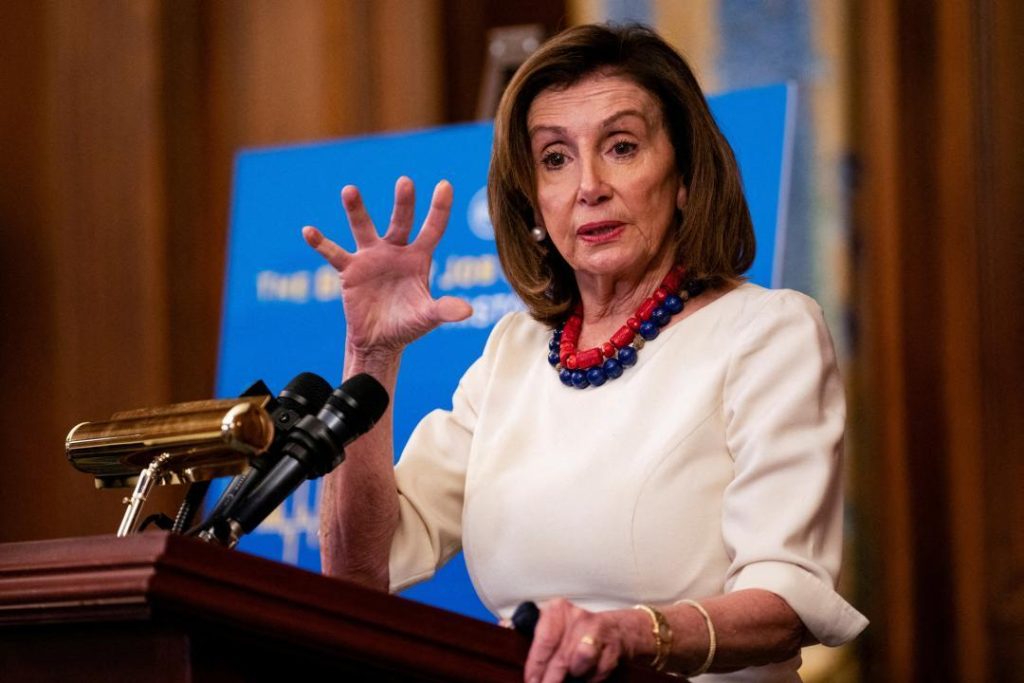
What is the PELOSI Act & why is it named after former US Speaker Nancy Pelosi?
In a bid to prevent conflicts of interest and promote transparency in government, US Senator Josh Hawley has reintroduced the Preventing Elected Leaders from Owning Securities and Investments (PELOSI) Act. The act, which aims to prohibit lawmakers and their spouses from holding or dealing in stocks while holding office, has sparked a fresh debate about the role of money in politics.
But what exactly is the PELOSI Act, and why is it named after former US Speaker Nancy Pelosi? In this blog post, we’ll delve into the details of the act and explore its significance in the context of US politics.
The PELOSI Act: A Brief Overview
The PELOSI Act, reintroduced in May 2022, seeks to ban lawmakers and their spouses from owning, buying, selling, or trading individual stocks, bonds, and other securities while in office. The act would also require lawmakers to divest themselves of any existing investments in the affected securities within a specified timeframe.
However, the act would not prohibit lawmakers from investing in more diversified, regulated financial products such as mutual funds (MFs), exchange-traded funds (ETFs), and Treasury bonds. This is because these types of investments are less likely to create conflicts of interest or provide lawmakers with an unfair advantage.
The Inspiration Behind the Act
The PELOSI Act is named after former US Speaker Nancy Pelosi, who enjoyed significant stock market gains during her term in office. Pelosi’s husband, Paul Pelosi, is a wealthy investor and the act’s namesake is a nod to the perceived conflict of interest that arose from her husband’s investments.
In fact, the act’s supporters argue that Pelosi’s husband made numerous lucrative trades during her tenure as Speaker, including a $1 million to $5 million gain from a single trade in 2020. This has led many to question whether her husband’s investments influenced her policy decisions or whether she had access to non-public information that helped her make informed investment decisions.
The Need for Reform
The PELOSI Act is a response to growing concerns about the influence of money in politics and the potential for conflicts of interest among lawmakers. With the rise of online trading and social media, lawmakers’ personal financial dealings have become increasingly scrutinized, and the public has grown increasingly skeptical of politicians’ claims of impartiality.
Moreover, the act’s supporters argue that the current system can create a culture of crony capitalism, where lawmakers use their positions to benefit their personal financial interests rather than serving the public interest.
Challenges and Controversies
While the PELOSI Act has garnered significant support from anti-corruption advocates and transparency groups, it has also faced criticism from some lawmakers and industry groups.
Some argue that the act is an overreach of government power, infringing on lawmakers’ personal freedoms and ability to manage their financial affairs. Others claim that the act’s restrictions would unfairly disadvantage lawmakers who have invested in individual stocks or bonds, potentially leading to a brain drain of talented individuals from public service.
Additionally, some have raised concerns about the act’s lack of exceptions for lawmakers who own small businesses or have inherited investments. These concerns have led some lawmakers to propose amendments to the act, which would provide more flexibility and exceptions for certain types of investments.
Conclusion
The PELOSI Act is a bold attempt to address the perceived conflicts of interest and lack of transparency in government. While the act has its critics, it has also sparked an important national conversation about the role of money in politics and the need for greater accountability among lawmakers.
As the debate surrounding the PELOSI Act continues, it is clear that the act’s supporters and critics will need to engage in a nuanced and informed discussion about the pros and cons of the legislation. Ultimately, the goal of the PELOSI Act – to promote transparency and reduce the influence of money in politics – is one that is worth pursuing.






